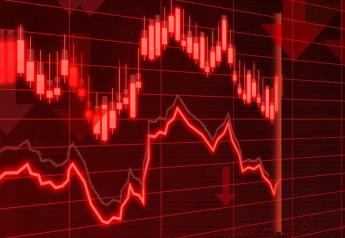Set Down Your Rocks

My backpack is getting pretty heavy. It’s been a long year full of unexpected twists and surprises around every curve of the journey. Certainly, there have been reasons to celebrate, but there have also been several moments of discouragement.
I think that’s why University of Minnesota College of Veterinary Medicine’s Dr. Athena Diesch-Chham’s rock theory hit the nail on the head for me. She says humans tend to pick up things they think they need to carry – in other words, they pick up “rocks.”
Those rocks can range from a side comment that didn’t sit well from a friend or watching your kids miss out on long-awaited opportunities to making unavoidable decisions on your farm or experiencing social isolation.
I guess you could say I’ve picked up my share of rocks in 2020. My husband says I’m such a good rock collector that I even try to pick up other people’s rocks, too.
After a while, the load gets pretty heavy. We are not meant to carry all those rocks at once. Diesch-Chham reminds us that we have a choice about how long we will carry around our rocks.
“There is some power in acknowledging that this happened, that it impacted me, that I am potentially changed by what has happened in a situation,” Diesch-Chham says. “But also, I can leave it here and I don’t have to carry it with me.”
Discover your vulnerabilities
The pork industry has dealt with its share of rocks this year. Christine McCracken, Rabobank executive director – animal protein, says it would be difficult to top 2020 when it comes to the volatility that the U.S. pork industry experienced. However, she points out an upside to the chaos.
“Oftentimes when an industry is seriously challenged, it learns its vulnerabilities,” she explains. “I would proactively address those weaknesses whether that is by managing risk, strengthening your balance sheet or finding new markets for your pigs – you can limit the financial impact of another disruption. Having a plan before you need it and when you still have a choice, is a significantly better option than being forced to make tough decisions in the middle of a crisis.”
As a Type A planner, I like to have my schedule figured out – it’s the only way I can keep us all where we need to be and when. But, after seeing our schedule completely turned upside down, the lesson my grandma tried to teach me as a kid – that you can make all the plans you want but remember you aren’t ultimately in control – has been relearned over and over this year.
We may not be able to control what happens in the future, but we can learn from 2020 in an effort to be more prepared for what’s ahead in 2021.
For me, moving forward into 2021 means leaving some of 2020’s rocks behind. What rocks are you carrying around right now that you need to set down?
More from Farm Journal's PORK:







